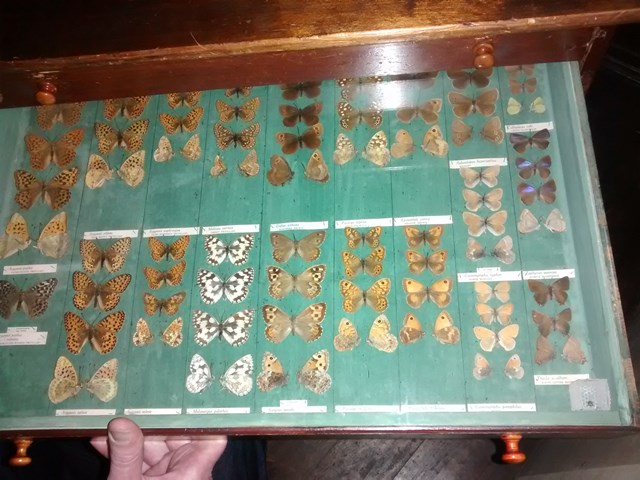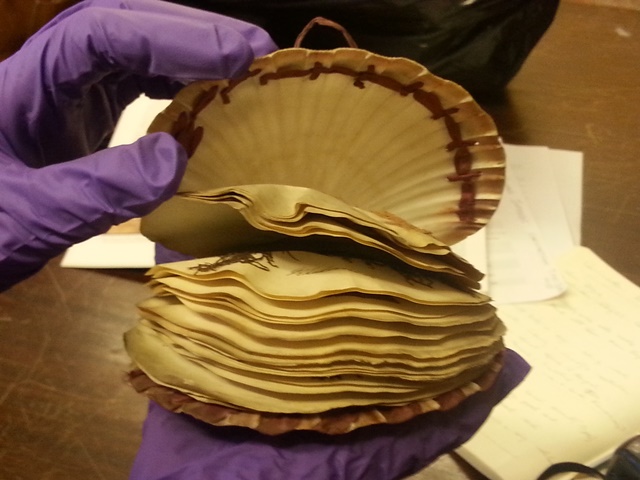With more than 20 years’ experience in a wide range of hands on managerial and curatorial roles across local authority and independent museums in both England and Wales Emma Chaplin has used her contacts to the full for her Collections stream at the Museums + Heritage Show. Emma has put together a varied programme to stimulate hardened collections professionals and those who are relatively new to the profession. “I have tried to include different topics: some old favourites and some new hot topics that are current at the moment and from different parts of the country,” she says. “We all tend to be aware of what’s happening on our own doorstep but outside your region may only have a vague awareness of what’s going on.”
The first of these talks will be Linking Collections: A Partnership Approach, which focuses on a project that is connecting natural science collections across Wales. For this talk Emma has called upon Linking Collections’ project manager Sarah Daly to show the benefits of pooling resources at a national level. “Linking Collections is a great thing that’s happening in Wales – they have a concept that Wales’ national collection is held, not in one big museum, but throughout the country.” The project has brought together specialist curators and volunteers to review what’s out there, to improve staff knowledge and spread the word about what’s in the collections in Wales, as well as creating learning resources for online visitors and touring exhibitions. The project is in its final phases so the audience will hear about its results and findings.

Butterfly drawer, Chepstow Museum
In the next session, Museum Accreditation: Supporting Your Collections, Samuel Rowlands, the national accreditation manager at Arts Council England and Ann Mansell, the accreditation manager for CyMal (Museums, Archives and Libraries Wales) will show how accreditation can benefit your organisation. “Accreditation is something that is dear to most museum’s hearts. However, sometimes museum professional feel that accreditation is something that they have got to do – it’s more of a trial rather than an opportunity.” They will talk about you can use policies and planning that you have to have for the accreditation of collections to support collection management improvements in your organisation. This session will be ideal for anyone who has got an accreditation return form coming up or is looking at becoming accredited for the first time.
Following this session will be sponsors of the Collections stream, Axiell which will be sharing its range of products that support collections with collections’ management systems and new technology products like the iBeacon and bulk data entry. Axiell will be showcasing real life applications and how they are being used across the sector. “I think this is a great one for people to dip in and see some of the new things that are happening.” The iBeacon is a device that uses Bluetooth in museums to transmit electronic information, rather than QR codes, and does not rely on a strong phone signal or internet connection.

Seaweed herbarium, Carmarthen Museum
Up next will be, Collections and Crowds, where Jenny Cousins and Carl Warner from IWM Duxford and Adam Todd, Magnetic North, will talk about crowdsourcing collections. “It’s about crowdsourcing but this isn’t about funding, it’s about information and how a museum’s can work on, for example, their photographic collection and crowdsource information about to getter more information to catalogue it. Obviously a lot of small museums are interested in doing it and they can pick up tips on how to do this and possibly find out more about their collections by using this approach.” There are pitfalls involved, however, and this session will highlight the good and the bad.
The penultimate session is Intrepid Volunteers on a journey of documentation, digitisation and access and will show ss Great Britain Trust used a band of volunteers to manage an 8,000 strong ship plan collection. Eleni Papavasileiou, of ss Great Britain Trust will go through the process of guiding the volunteers in sorting, listing, documenting and digitising the collection. “It shows how you can make the most out of volunteers and achieve results you couldn’t dream of in a million years if you were relying on your staff.”
The final session in the Collections stream will be, Use It or Lose It where Matthew Read, of West Dean College – who was featured in M+H Advisor at the end of March for his Ground-breaking work to restore 250-year-old Anglesey Abbey clock – will look at the benefits and risks of displaying moving objects. “I wanted to have something there about conservation when you look at a collection you are responsible for looking after it. This is conservator talking about conserving looking at the benefits of keeping something as a working object and repairing it for that reason rather than putting it in a case and not use it.” This talk will challenge conservators to think about the best way of looking after their collections.
Back to top




